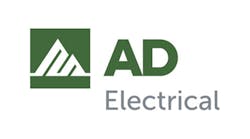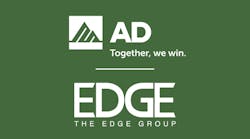What's it going to take to jumpstart this economy? Last year's economic stimulus bill didn't do the trick. Although interest rates are at a near 45-year low and low mortgage rates help stimulate new residential construction, they certainly haven't helped pull the rest of the construction market out of its slump.
Let's hope this year's new tax act, the Jobs and Growth Tax Relief Act of 2003, signed into law by President Bush in late May, will help rev spending and construction. According to industry economists, the legislation will stimulate demand for construction by returning $210 billion to individuals, businesses and states over the next 16 months.
In addition to lowering the income tax rates of the top four tax brackets, the effects of which the majority of you reading this column have already seen in the form of greater take-home dollars on your most recent paycheck, the new tax law also provides incentives designed to encourage businesses like your electrical contractor customers to spend.
Independent Electrical Contractors Inc. (IEC), Alexandria, Va., lobbied for several items in the bill, including depreciation relief, small business expensing and other key provisions that will relieve tax burdens for construction firms, owners and employees.
“I think the President is really out to help small businesses succeed, and his tax plan took a number of steps to ensure that we do,” said Scott Harding, an IEC member and CEO of F.B. Harding Inc., a family-owned electrical contracting business in Rockville, Md.
In President Bush's speech when he signed the tax act into law, the President used Harding's electrical contracting firm as an example of how the bill would help small businesses. Said Bush, “Scott Harding's company is a sub-S company. He spends more than $100,000 a year in new equipment. His business will save at least $12,000 because of this legislation's increased expensing rules. His savings, plus those of the other people who own this company, will help this company buy more equipment for their 50 employees, which will make the employees more productive, which will make it more likely that he'll be able to expand the number of employees who work for him.”
The depreciation relief provision of this new tax bill says all firms buying new equipment after May 5, 2003, and before Jan. 1, 2005, can immediately deduct 50 percent of the cost. This is an increase from the 30 percent “bonus depreciation” enacted last year for equipment placed in service between Sept. 11, 2001 and Sept. 10, 2004. The first-year limit for business automobiles has also increased — from $4,600 to $7,650.
The tax package helps with small business expensing as well. Businesses that buy less than $400,000 worth of equipment in 2003 can expense $100,000 of it before using the bonus depreciation amounts listed above. These limits increased from $200,000 and $25,000 in previous years, and will be indexed for inflation in 2004 and 2005. The old limits will be reimposed in 2006 unless Congress acts again.
Another provision that helps businesses is the change in tax rates for dividends and capital gains. Corporate stockholders benefit from the reduction in the top rate on both dividends and capital gains to 15 percent, beginning Jan. 1, 2003. Under the bill, this provision “sunsets” at the end of 2008. In addition to helping shareholders of companies currently organized as “C” corporations, this tax cut will enable some construction firms now taxed as “S” corporations or partnerships to choose more flexible “C” corporation status once they no longer face tax rates of up to 38.6 percent on dividends.








